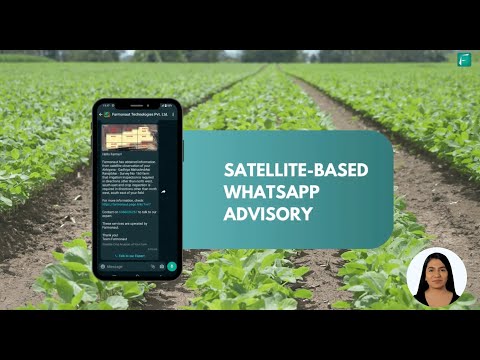Empowering Staunton’s Youth: Sustainable Agriculture Program Expands Career Pathways in Augusta County
“Virginia’s YLA Program offers paid summer farming positions to teens, combining hands-on experience with educational workshops and field trips.”
In the heart of Augusta County, Virginia, a groundbreaking initiative is taking root, one that promises to nurture not just crops, but the future leaders of sustainable agriculture. We’re excited to share the news of a significant development in Staunton’s agricultural education landscape that’s set to transform the lives of local youth and the community at large.
Project GROWS, a nonprofit educational farm in Augusta County, has recently received a generous gift of $20,000 from the Tess Majors Foundation. This funding will breathe new life into their Youth Leaders in Agriculture (YLA) Program, expanding opportunities for local students to gain hands-on farming experience and develop crucial leadership skills.

The Seeds of Change: YLA Program’s Impact on Staunton’s Youth
The Youth Leaders in Agriculture Program is more than just a summer job for teens. It’s a comprehensive initiative that combines paid positions with educational workshops and field trips, creating a unique learning environment for high school juniors and seniors interested in exploring careers related to farming and food systems.
Clara Metzler, Executive Director of Project GROWS, emphasizes the program’s impact: “This gift is pretty impactful for us for sure. It will enable us to offer paid summer positions for high school students for this eight-week program, as well as educational workshops and field trips and other program expenses.”
But what exactly does the YLA Program offer to Staunton’s youth? Let’s break it down:
- Hands-on Farming Experience: Participants get their hands dirty (literally!) learning sustainable agriculture practices firsthand.
- Summer Camp Support: YLA members assist with educational programs for younger children, developing leadership and communication skills.
- Community Farmers Markets: Students learn about local food systems by participating in and supporting community farmers markets.
- Job Readiness Skills: The program focuses on developing essential skills like teamwork, responsibility, and leadership.
- Career Pathways: YLA opens doors to various career opportunities in agriculture and related fields.
Cultivating Sustainability: The Heart of YLA’s Mission
At its core, the YLA Program is about fostering sustainable agriculture practices and inspiring the next generation of agricultural leaders. By providing hands-on experience in sustainable farming techniques, the program equips students with the knowledge and skills needed to address the challenges of modern agriculture.
This focus on sustainability aligns perfectly with the growing demand for environmentally conscious farming practices. As we face global challenges like climate change and food security, programs like YLA play a crucial role in preparing young people to become stewards of the land and innovators in sustainable food production.
Community Farming Initiatives: Bridging Education and Practice
One of the most exciting aspects of the YLA Program is its integration with community farming initiatives. Participants don’t just learn about sustainable agriculture in isolation; they actively contribute to local food systems and community development.
Through involvement in community farmers markets, YLA members gain firsthand experience in:
- Direct marketing of agricultural products
- Understanding consumer preferences and market dynamics
- Building relationships with local farmers and customers
- Promoting awareness of locally grown, sustainable produce
This hands-on involvement in community farming initiatives not only enhances the students’ learning experience but also strengthens the local food system, creating a win-win situation for both the participants and the community.
Expanding Horizons: The Impact of Increased Funding
With the generous funding from the Tess Majors Foundation, the YLA Program is set to expand its reach and deepen its impact. But what does this expansion mean in practical terms? Let’s take a look at the program’s growth potential:
| Metrics | Pre-Expansion | Post-Expansion (Estimated) |
|---|---|---|
| Number of student participants | 10 | 20 |
| Paid positions offered | 5 | 15 |
| Educational workshops conducted | 8 | 16 |
| Field trips organized | 2 | 6 |
| Local farmers markets involved | 1 | 3 |
| Community farming initiatives | 2 | 5 |
| Career pathways introduced | 3 | 8 |
| Sustainable agriculture practices taught | 5 | 12 |
| Leadership skills developed | 4 | 10 |
| Community impact reach (estimated number of people) | 500 | 2000 |
As we can see, the expansion promises significant growth across all aspects of the program, from the number of participants to the breadth of skills and experiences offered.
Bridging the Gap: Agriculture and Technology
In today’s rapidly evolving agricultural landscape, it’s crucial to equip young farmers with knowledge of cutting-edge technologies. While the YLA Program focuses on hands-on experience, it’s worth noting the role of technology in modern farming practices.
Companies like Farmonaut are at the forefront of this technological revolution in agriculture. Farmonaut offers satellite-based farm management solutions that can significantly enhance farming efficiency and sustainability. While not directly part of the YLA Program, understanding such technologies could be beneficial for students interested in the intersection of agriculture and technology.

For those interested in exploring Farmonaut’s offerings:
- API for developers looking to integrate agricultural data into their applications
- API Developer Docs for detailed information on using Farmonaut’s API


“A nonprofit educational farm’s expanded youth program cultivates agricultural expertise, impacting local food systems and sustainable farming practices.”
From Field to Future: Career Pathways in Agriculture
One of the most exciting aspects of the YLA Program is its potential to open up diverse career pathways for participants. The agricultural sector offers a wide range of opportunities beyond traditional farming, and the YLA Program aims to expose students to this variety.
Some potential career paths that YLA participants might explore include:
- Sustainable Farm Management
- Agricultural Technology and Innovation
- Food Science and Nutrition
- Agricultural Policy and Advocacy
- Agribusiness and Marketing
- Environmental Conservation
- Agricultural Education and Extension
By providing hands-on experience and exposure to various aspects of the agricultural industry, the YLA Program helps students make informed decisions about their future careers in this vital sector.
Nurturing Leadership: Beyond Farming Skills
While the YLA Program’s focus on agricultural skills is evident, it’s equally important to highlight its role in developing leadership abilities. The program’s structure inherently fosters qualities that are essential for future leaders in any field:
- Decision-making: Participants learn to make crucial decisions about crop management and resource allocation.
- Problem-solving: Facing real-world agricultural challenges encourages creative problem-solving skills.
- Communication: Interacting with peers, mentors, and the community enhances verbal and non-verbal communication skills.
- Teamwork: Collaborative farming projects teach the value of working effectively in a team.
- Responsibility: Managing living crops instills a sense of responsibility and accountability.
- Adaptability: Dealing with unpredictable weather and changing conditions fosters adaptability.
These leadership skills are transferable to many career paths, making the YLA Program valuable even for students who may not pursue agriculture as a career.
Community Impact: Ripple Effects of Youth Engagement
The benefits of the YLA Program extend far beyond the individual participants. By engaging youth in sustainable agriculture and community development, the program creates positive ripple effects throughout Staunton and Augusta County:
- Strengthening Local Food Systems: YLA participants contribute to and promote local farmers markets, enhancing food security and community resilience.
- Promoting Sustainable Practices: As students learn about and implement sustainable farming techniques, they become advocates for environmental stewardship in their communities.
- Bridging Generational Gaps: The program creates opportunities for knowledge exchange between experienced farmers and the younger generation.
- Economic Impact: By preparing youth for careers in agriculture and related fields, the program contributes to long-term economic development in the region.
- Community Education: Through their involvement in community events and farmers markets, YLA participants help educate the public about the importance of local, sustainable agriculture.
The Road Ahead: Future Prospects for YLA and Sustainable Agriculture
As we look to the future, the expanded YLA Program stands poised to make a significant impact on sustainable agriculture and youth development in Staunton and beyond. Here are some potential developments we might see in the coming years:
- Expanded Partnerships: Collaboration with local schools, colleges, and agricultural businesses could provide even more opportunities for YLA participants.
- Technology Integration: As agricultural technology advances, the program might incorporate more tech-focused elements, such as precision farming techniques or data analysis.
- Policy Influence: As graduates of the program move into various career paths, they may influence agricultural and environmental policies at local and state levels.
- Research Opportunities: The program could evolve to include youth-led research projects on sustainable farming practices, contributing to the broader field of agricultural science.
- Replication in Other Communities: The success of the YLA Program in Staunton could serve as a model for other communities looking to engage youth in sustainable agriculture.
The future of sustainable agriculture in Staunton and Augusta County looks bright, thanks in large part to initiatives like the YLA Program that are nurturing the next generation of agricultural leaders.
Get Involved: Supporting the Future of Sustainable Agriculture
For those inspired by the YLA Program and eager to support sustainable agriculture initiatives, there are several ways to get involved:
- Volunteer: Many community farming initiatives welcome volunteers. Check with local farms or community gardens for opportunities.
- Support Local Farmers Markets: Buying from local farmers markets supports sustainable agriculture and strengthens community food systems.
- Educate Yourself: Learn about sustainable farming practices and their importance. Resources like Farmonaut’s educational content can be a great starting point.
- Advocate: Support policies that promote sustainable agriculture and youth engagement in farming.
- Donate: Consider supporting organizations like Project GROWS that are making a difference in agricultural education and community development.
Conclusion: Sowing Seeds for a Sustainable Future
The expansion of the Youth Leaders in Agriculture Program in Staunton, Virginia, represents more than just an educational initiative. It’s a forward-thinking investment in the future of sustainable agriculture, community development, and youth empowerment.
By providing hands-on farming experience, leadership training, and exposure to diverse career pathways, the YLA Program is nurturing a generation of informed, skilled, and passionate agricultural leaders. These young people will play a crucial role in shaping the future of food systems, environmental stewardship, and community resilience.
As we’ve explored throughout this article, the impact of this program extends far beyond the individual participants. It strengthens local food systems, promotes sustainable practices, bridges generational gaps, and contributes to the economic and social fabric of the community.
The success of the YLA Program in Staunton serves as an inspiring model for other communities looking to engage youth in sustainable agriculture. It demonstrates the power of hands-on education, community involvement, and investment in young people.
As we look to the future, programs like YLA give us reason to be optimistic about the future of agriculture. They show us that with the right support, education, and opportunities, young people can become powerful agents of change, driving innovation and sustainability in one of our most essential industries.
The seeds planted by the YLA Program today will grow into a more sustainable, resilient, and community-oriented agricultural future tomorrow. And that’s something we can all celebrate and support.

FAQ Section
- Q: Who is eligible to participate in the Youth Leaders in Agriculture Program?
A: The program is open to high school juniors and seniors interested in exploring careers related to farming and food systems in the Staunton and Augusta County area. - Q: How long does the YLA Program run?
A: The program is an eight-week summer initiative, offering paid positions and educational experiences. - Q: What kinds of activities do YLA participants engage in?
A: Participants gain hands-on farming experience, help with summer camps, support community farmers markets, and learn about local food systems through workshops and field trips. - Q: How does the YLA Program contribute to sustainable agriculture?
A: The program teaches sustainable farming practices, promotes local food systems, and encourages environmental stewardship among young participants. - Q: Can YLA participants earn money through the program?
A: Yes, the program offers paid summer positions for participants. - Q: How can I apply for the YLA Program?
A: Applications for the 2025 Youth Leader in Agriculture Program are open now. More information and instructions on how to apply can be found on the Project GROWS website. - Q: What career pathways does the YLA Program prepare students for?
A: The program prepares students for various careers in agriculture, food systems, environmental conservation, agribusiness, and related fields. - Q: How does the YLA Program impact the local community?
A: The program strengthens local food systems, promotes sustainable practices, provides youth employment, and contributes to community education about agriculture. - Q: Is there a cost to participate in the YLA Program?
A: The program offers paid positions, so there is no cost to participate. In fact, students earn money while learning valuable skills. - Q: How can community members support the YLA Program?
A: Community members can support the program by volunteering, shopping at local farmers markets, advocating for sustainable agriculture policies, and considering donations to organizations like Project GROWS.
Earn With Farmonaut
Earn 20% recurring commission with Farmonaut’s affiliate program by sharing your promo code and helping farmers save 10%. Onboard 10 Elite farmers monthly to earn a minimum of $148,000 annually—start now and grow your income!
Farmonaut Subscriptions




